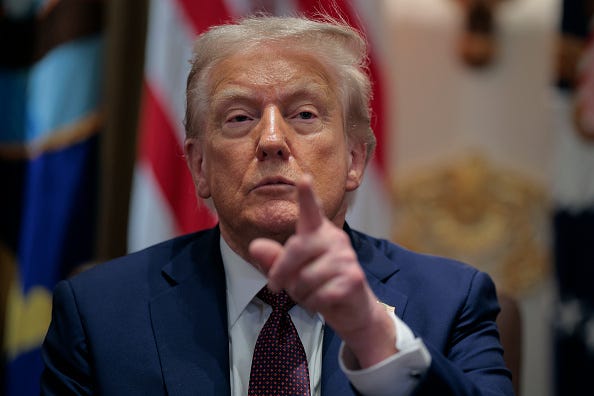
Large-scale psychiatric hospitals, like sanitariums, may seem like they've gone the way of iron lungs, but President Donald Trump recently reiterated his campaign promise to bring back "insane asylums." The president believes they're necessary to address the issue of mentally ill people committing crimes.
In an interview with "Daily Caller" Trump blamed crime and mayhem in Democrat-run cities and states on the fact they're forced to release the mentally ill into society due to financial constraints. This situation arose as people grapple for answers on why a transgender woman opened fire on a Catholic school last week, killing two and injuring 17. The shooter left behind a rambling manifesto and videos that were clearly the work of a disturbed mind.
"Well, they used to have them (asylums), and you never saw people like we had," Trump said. "They released them all into society because they couldn’t afford it. You know, it’s massively expensive."
Trump went on to recall the closure of mental health institutions in New York and said the reestablishment of such facilities could be a necessary expense for public safety.
"But we had, they were all over New York. I remember when I was growing up... they released them into society, and that’s what you have. It’s a rough, it’s a rough situation."
He added: "You can’t have these people walking around... so dangerous, so dangerous. And they can live to be 85 years old."
Trump is musing about asylums while overseeing a broad public safety initiative in Washington, D.C., that targets the homeless, criminals, and illegal immigrants, with plans to expand to other states and cities. It's controversial because the effort has federal troops patrolling a U.S. city alongside local public safety. Results are mixed, with people on the GOP side touting the lack of murders in D.C. since it began and others in the media pointing out that most of the arrests taking place under the federal watch have been for low-level offenses.
Trump wants very much to be considered a law-and-order president, although he did not outline plans for funding asylums or making funds available for states to do so. Michigan, and many others, were forced to close their psychiatric hospitals in the 1990s due to financial constraints.
